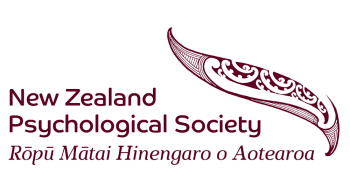
Institute of Organisational Psychology (IOP)
Welcome to the Institute of Organisational Psychology New Zealand
Organisational psychologists are experts in human behaviour in the workplace, having extensively studied the brain, performance, learning, group behaviour, and the processes determining how people think, feel, behave and react, and the impact of these on organisational outcomes. Working with the Science-Practitioner model, we apply our expertise using reliable and scientifically supported methods to assist organisations achieve their business goals. Effective practice often also impacts positively on employee wellness and health.
The aim of the Professional Issues section is to assist practitioners to deliver high quality services. We currently have some best practice guidelines in key areas and are working on reviews of commonly used tests and questionnaires. Key learning points from complaints to the Society and Board are also being drawn up.
‘Chartered’ members have completed an honours or Masters degree specialising in Organisational Psychology, and have been supervised in their practice to ensure they are applying their knowledge effectively. Chartered members are also required to undergo ongoing professional development, and comply with the ethics involved in this practice.
Join the Institute
There are four categories of membership of the Institute. Click here for the rules.
- Chartered Members have Masters or Honours degrees and will have been supervised in their practice of Organisational Psychology (a University through a Post Graduate Diploma in Organisational Psychology or a supervisor under the Psychologist Board scheme, prior to 31 August 2015).
- Academic Members are permanent staff members of a university and will have a PhD in an Organisational Psychology area, or have published in that area.
- Members have post graduate qualifications or interest in the area but have not been supervised in their practice or are not practicing any more.
- Student members will be completing post graduate studies in organisational psychology.
All applications will be reviewed two members of the committee to assess whether an applicant meets the criteria set out in the rules for the category of membership they have applied for. Typically this will take less than one week. Membership is free (included in your annual NZPsS subscription).
Please note that NZPsS student subscribers can become institute student subscribers only. To become a full member of an institute you need to be a full member of NZPsS first.
How to Join
If you are not a member of the New Zealand Psychological Society (NZPsS) you will need to register before joining The Institute of Organisational Psychology. NZPsS membership gives you access to the on-line journals database, the New Zealand Journal of Psychology, and discounted professional indemnity insurance to name just a few of the benefits. You can use the ‘find a chartered member button’ to find members you know, to nominate you. You can apply for membership of the NZPsS here
If you are already a member of the Society click here to apply for membership of the Institute of Organisational Psychology (IOP)
Both applications can be completed at the same time if you are not a member of the Society and would like to join the Institute.
The IOP committee
Joel Majer - Chair, Email Joel
tbc - Secretary
Katharina Naswall, University Liaison Email Katharina
Karen Tonkin - Membership,
Jonathan Black - Services to Members,
Stewart Forsyth – Auckland IOSIG,
Lydia Edwards - Treasurer,
Crispin Garden-Webster – Professional Development,
For more information on the Institute please go to their own website here: http://www.organisationalpsychology.nz/
ALLIANCE FOR ORGANISATIONAL PSYCHOLOGY
 We are very excited to announce that we have been invited to join the Alliance for Organisational Psychology, and have today formally accepted their invitation.
We are very excited to announce that we have been invited to join the Alliance for Organisational Psychology, and have today formally accepted their invitation.
The Alliance aims to promote cooperation and information sharing amongst Organisational Psychology bodies across the world.
